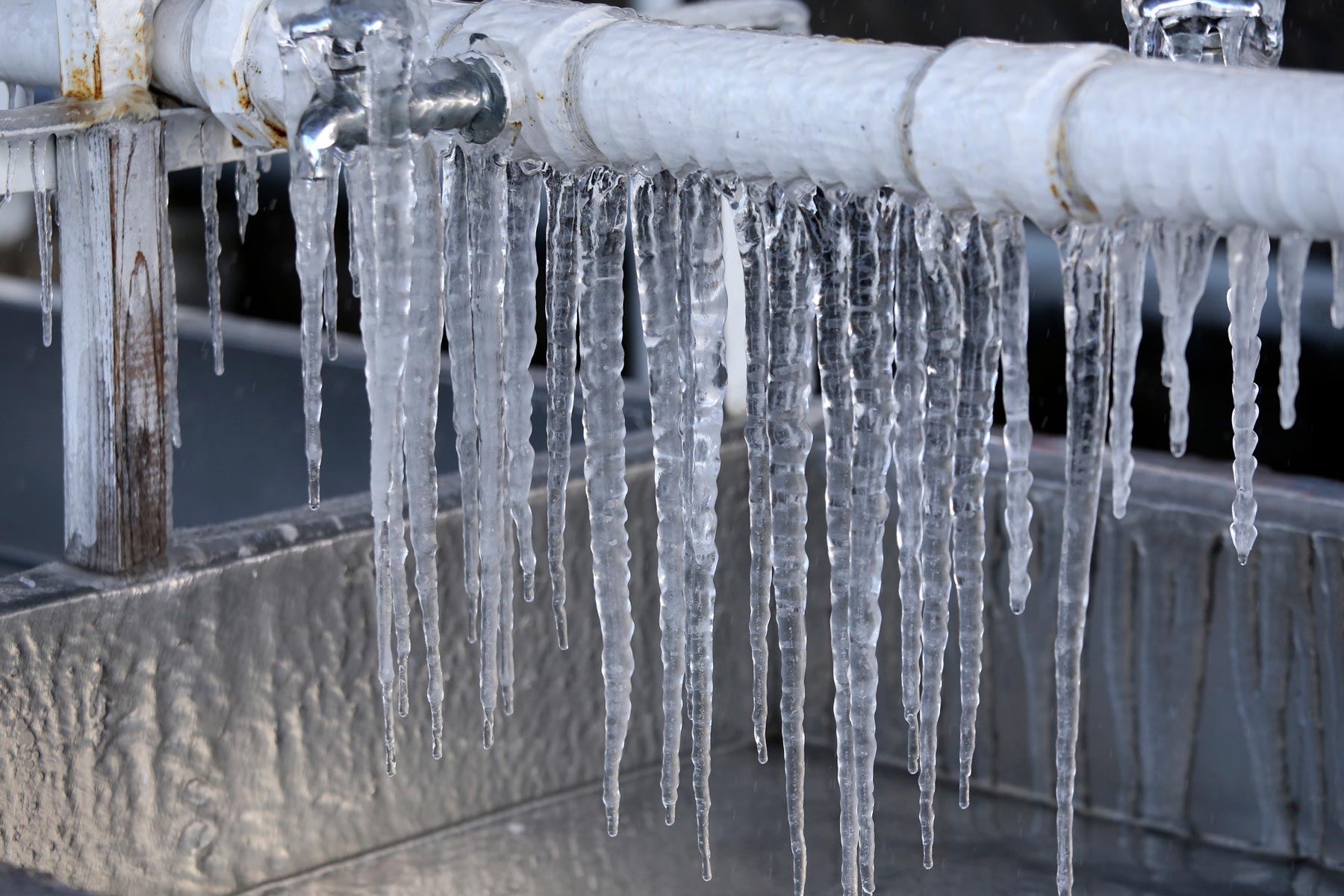How to Avoid Frozen Plumbing in Cold Weather: Expert Advice
How to Avoid Frozen Plumbing in Cold Weather: Expert Advice
Blog Article
We have discovered this article on How To Avoid Freezing Pipes below on the net and believe it made good sense to talk about it with you here.

Winter can damage your pipes, especially by freezing pipelines. Right here's how to stop it from taking place and what to do if it does.
Introduction
As temperature levels decrease, the threat of icy pipelines rises, possibly resulting in expensive repair services and water damage. Recognizing exactly how to avoid frozen pipes is important for house owners in chilly environments.
Prevention Tips
Insulating at risk pipelines
Wrap pipelines in insulation sleeves or utilize heat tape to protect them from freezing temperature levels. Focus on pipelines in unheated or outside locations of the home.
Home heating techniques
Maintain interior rooms appropriately heated up, specifically areas with pipes. Open closet doors to allow warm air to flow around pipes under sinks.
Exactly how to identify frozen pipelines
Seek decreased water flow from taps, uncommon odors or noises from pipes, and noticeable frost on revealed pipes.
Long-Term Solutions
Structural modifications
Take into consideration rerouting pipelines far from outside wall surfaces or unheated locations. Include extra insulation to attic rooms, cellars, and crawl spaces.
Upgrading insulation
Invest in high-quality insulation for pipes, attics, and wall surfaces. Correct insulation assists preserve regular temperature levels and decreases the danger of icy pipes.
Securing Outside Pipes
Yard pipes and outdoor faucets
Separate and drain pipes garden hoses before wintertime. Mount frost-proof faucets or cover outside taps with shielded caps.
Understanding Icy Pipes
What triggers pipelines to freeze?
Pipelines ice up when exposed to temperature levels below 32 ° F (0 ° C) for extended periods. As water inside the pipelines freezes, it broadens, putting pressure on the pipe wall surfaces and possibly causing them to rupture.
Threats and damages
Frozen pipelines can lead to water supply disruptions, residential or commercial property damage, and pricey repairs. Ruptured pipes can flooding homes and trigger comprehensive architectural damage.
Indicators of Frozen Water Lines
Identifying icy pipelines early can stop them from rupturing.
What to Do If Your Pipes Freeze
Immediate activities to take
If you think icy pipes, maintain taps available to relieve stress as the ice thaws. Utilize a hairdryer or towels taken in warm water to thaw pipes slowly.
Verdict
Avoiding icy pipes needs positive procedures and fast actions. By understanding the reasons, indications, and preventive measures, property owners can protect their pipes throughout winter.
Helpful Tips to Prevent Frozen Pipes this Winter
UNDERSTANDING THE BASICS: WHY PIPES FREEZE AND WHY IT’S A PROBLEM
Water freezing inside pipes is common during the winter months, but understanding why pipes freeze, and the potential problems it can cause is crucial in preventing such incidents. This section will delve into the basics of why pipes freeze and the associated problems that may arise.
THE SCIENCE BEHIND FROZEN PIPES
When water reaches freezing temperatures, it undergoes a physical transformation and solidifies into ice. This expansion of water as it freezes is the primary reason pipes can burst. As the water inside the pipe freezes, it expands, creating immense pressure on the walls. If the pressure becomes too great, the pipe can crack or rupture, leading to leaks and water damage.
FACTORS THAT CONTRIBUTE TO PIPE FREEZING
Low Temperatures: Extremely cold weather, especially below freezing, increases the risk of pipes freezing. Uninsulated or Poorly Insulated Pipes: Pipes located in unheated areas, such as basements, crawl spaces, or attics, are more prone to freezing. Insufficient insulation or lack of insulation altogether exacerbates the problem. Exterior Wall Exposure: Pipes running along exterior walls are susceptible to freezing as they encounter colder temperatures outside. Lack of Heating or Temperature Regulation: Inadequate heating or inconsistent temperature control in your home can contribute to frozen pipes. PROBLEMS CAUSED BY FROZEN PIPES
- Pipe Bursting: As mentioned earlier, the expansion of water as it freezes can cause pipes to burst, resulting in significant water damage.
- Water Damage: When pipes burst, it can lead to flooding and water damage to your property, including walls, ceilings, flooring, and personal belongings.
- Structural Damage: Prolonged exposure to water from burst pipes can compromise the structural integrity of your home, leading to costly repairs.
- Mold and Mildew Growth: Excess moisture from water damage can create a favorable environment for mold and mildew growth, posing health risks to occupants.
- Disrupted Water Supply: Frozen pipes can also result in a complete or partial loss of water supply until the issue is resolved.
WHY CERTAIN PIPES ARE MORE PRONE TO FREEZING
- Location: Pipes located in unheated or poorly insulated areas, such as basements, crawl spaces, attics, or exterior walls, are at higher risk of freezing.
- Exterior Pipes: Outdoor pipes, such as those used for irrigation or exposed plumbing, are particularly vulnerable to freezing as they are directly exposed to the elements.
- Supply Lines: Pipes that carry water from the main water supply into your home, including the main water line, are critical to protect as freezing in these lines can affect your entire plumbing system.
- Underground Pipes: Pipes buried underground, such as those connected to sprinkler systems or outdoor faucets, can be susceptible to freezing if not properly insulated.
https://busybusy.com/blog/helpful-tips-to-prevent-frozen-pipes-this-winter/

I discovered that page on Helpful Tips to Prevent Frozen Pipes this Winter while surfing around the web. Make sure you pause to distribute this entry if you enjoyed reading it. We treasure your readership.
Get Your Estimate Now Report this page